
views
Lucknow: Voting in four phases of Lok Sabha elections is over and in phase five, polling for which will take place on May 6, the much talked about ‘Congress factor’ will be at its maximum display in Uttar Pradesh.
While it will be a personal electoral battle for Congress president Rahul Gandhi in Amethi and his mother, UPA chairperson Sonia Gandhi, in Rae bareli, the grand old party also appears to be a serious player on a few more seats. It is also poised to be the game changer on many other seats -- for both the BJP and the SP-BSP alliance.
The 14 UP seats going to polls on May 6 include Dhaurara, Sitapur, Fatehpur, Lucknow, Banda, Faizabad, Kaisarganj, Gonda, Mohanlalganj, Kaushambi, Barabanki and Bahraich. The last four are reserved constituencies.
Senior BJP leader Rajnath Singh is contesting again from Lucknow, a seat which has been a BJP citadel since 1991. The party has never lost the seat since then. Singh appears to be in a comfortable position again, more so after the Opposition’s failure to field a joint candidate against him.
The Congress has fielded Pramod Krishnan and Samajwadi Party has given ticket to Poonam Sinha, wife of actor-politician Shatrughan Sinha. An almost certain division of non-BJP votes will clearly be an added advantage for Singh.
Apart from Amethi and Rae bareli, the other two seats that Congress is hopeful of winning in phase five are Dhaurara and Barabanki. In Dhaurara it is party youth leader and Brahmin face Jitin Prasada and in Barabanki, Tanuj Puniya, son of Congress Rajya Sabha MP PL Puniya, has been fielded.
While the grand old party is hoping to score a possible win in these four constituencies, the ‘Congress factor’ will be in force in other seats as well. It will work either in favour of the gathbandhan or the BJP, depending on local equations and party candidates.
No doubt, it’s this phase which puts Congress general secretary and east UP in-charge Priyanka Gandhi’s recent statement on “cutting into BJP Votes” to maximum scrutiny.
On May 1, while campaigning for her brother Rahul Gandhi in Amethi, Priyanka made an explosive comment: fielding candidates who would chew into BJP’s vote share but not hurt the gathbandhan in Uttar Pradesh. Her comment gave rise to speculations of a possible tactical understanding between the SP-BSP alliance and the Congress.
However, SP chief Akhilesh Yadav was quick to refute the claims. “I cannot believe in these types of statements. I do not believe that the Congress has fielded weak candidates anywhere. No party does it. People are not with them. That is why they are making excuses,” Yadav said. “There is no difference between the BJP and the Congress. The Congress wants to benefit the BJP,” he added.
But despite what Akhilesh says, reality is that the original alliance calculation suggested that Congress contesting independently would actually be an advantage for SP-BSP as the party would cut into BJP’s core upper caste vote bank. However, these assumptions were slightly disturbed by the fact that Congress decided to go aggressive in UP rather than being a docile third force in the state.
An analysis of phase five seats throws an interesting insight. For example, in Banda, Congress has given ticket to Bal Kumar Patel, a Kurmi. The BJP has also fielded a Kurmi in RK Patel. The SP, on the other hand, has given ticket to Shyama Charan Gupta, an upper caste Hindu. In 2014, the SP-BSP combined vote share was well above 48 per cent as compared to BJP’S 40 per cent. In Banda, Dalit Chamars and OBC Yadavs dominate the voter demography with around 15 percent and 9 percent vote share respectively.
For a non-Yadav, non-Jatav counter polarisation to work here, the BJP is banking strongly on the 8 per cent Kurmi votes in this constituency.
But Congress might just puncture this “counter polarisation” through Bal Kumar, a local heavyweight. He is the nephew of Shiv Kumar Dadua, a dreaded dacoit who was gunned down by the special task force over a decade ago
Similarly, Congress’s decision to contest in Faizabad could spell trouble for the BJP. Here, the SP-BSP alliance is banking upon former UP Congress chief Nirmal Khatri eating into BJP’s upper caste and urban vote base. Khatri himself is an upper caste. The alliance is hoping for a consolidation of around 15 per cent Muslim voters, 13 per cent Yadav and around 5 per cent Chamar voters.
In the four reserved constituencies of Behraich, Kaushambi, Mohanlalganj and Barabanki, the ‘Congress factor’ can be well understood. In Mohanlalganj, where Dalit Pasi constitute for more than 19 per cent voters, followed by OBC Yadavs at 13.5 per cent and Dalit Chamars at 10.3 per cent, the party has – just like gathbandhan and BJP –fielded a Pasi candidate. Former MLA RK Chowdhry is its candidate against CL Verma of the BSP and Kaushal Kishore of the BJP.
In the present political scenario, if Congress candidate takes away a strong chunk of core Pasi vote bank, it would prove to be a big disadvantage for BJP. While the BSP can bank upon the assumed solidarity of Yadavs and Chamars, the triangular split of Pasi votes will be the bigger challenge for the saffron party.
In Kaushambi, too, where the alliance looks very strong, Congress’s candidature can dent BJP’s hopes further with a possible breach in upper caste vote bank, which is around 16 per cent here. In 2014, the SP-BSP combined vote share was 54 per cent as compared to BJP’s 36.43 per cent. In 2009, it was even bigger at almost 80 per cent against the BJP’S 6.53 per cent.
In Beharaich, Congress can become the Achilles heel for the BJP. It has fielded sitting BJP MP Savitri Bai Phule as its candidate. The SP has given a ticket to a Dalit with a Muslim name. Shabbir Ahmad Balmiki is the alliance candidate here. Akshaybar Lal is contesting on a BJP ticket.
While the alliance is banking on the solidarity of 28 per cent Muslims, 8 per cent Chamars and around 7 per cent Yadavs, the BJP’s hope rests on the counter polarisation of 18 per cent non-Yadav OBCs, 12per cent upper castes and 12per cent MBC.
The Congress, if it contests strongly in Beharaich, can seriously dent the BJP’s upper caste vote bank, keeping in mind the soft corner Brahmins possess for the former. Even a slightest of dent could be dangerous. Analysis of the 2014 Lok Sabha polls shows that BJP got 46.28 per cent votes and the SP-BSP together got 46.42 per cent votes.
In Barabanki, however, the Congress is in a serious race to win. That’s is why, while addressing a rally in the constituency on Wednesday, Rahul Gandhi said, “SP-BSP’S remote control is with the BJP”. The Congress president was referring to the pending corruption cases against the top leaders of the two parties and a possible misuse of the central investigating agencies by the ruling BJP.
No doubt, in constituencies like Barabanki, the grand old party wants to try mobilisation of non-BJP votes, especially of minorities, by establishing that it is Congress that is locked in fight against the BJP and not the alliance. The constituency has around 16 per cent Muslims, 15 per cent pasis, 11.7 per cent kurmi OBCs, 9.4 per cent Yadavs and 9 per cent Dalit chamars. About 17 per cent voters are from the upper castes.
In Dhaurara, where the Yadav-Chamar combination doesn’t dominate, Congress will be banking on a strong penetration among the 21 per cent upper caste voters. Jitin being a Brahmin could be a further advantage. The party further hopes of consolidation of around 13 per cent Muslim votes along with other non-BJP votes. However, the fact that the BSP has fielded Muslim candidate Arshad Siddiqui, the ticket could be a cause of concern. The BJP has fielded Rekha Verma.
But the ‘Congress factor’ is not entirely and always against the BJP, a case in point being certain seats like Saharanpur in Phase 1 and Farukhabad and Kheri in Phase 4. In phase five, too, there are a couple of seats where this factor can be a cause of concern for the alliance and a reason of hope for the BJP.
For example, in Sitapur and Fatehpur constituencies, the BJP will hope that Congress eats into the alliance's vote bank. In Sitapur, Congress has fielded former BSP leader and MP Kaiser Jahan. If she contests well, then the non-BJP votes, especially the Muslim votes, stand the risk of being divided. The BJP will then have hopes here, where in 2014 compared to its 40.66 per cent votes, the SP-BSP together had got 51 per cent votes.
In Fatehpur, former SP MP Rakesh Sachan is contesting on a Congress ticket. Sachan, with his old Samajwadi credentials, can at the end of the day eat more into the alliance’s vote base than the BJP’s. And in a scenario where BJP and SP-BSP’s combined vote almost matched at around 45% each in 2014, the even a slightly strong position of the Congress could be a threat for the gathbandhan.
Although BJP leader Smriti Irani is fighting a strong battle, in most VVIP seats of Amethi the Congress has been given a breather by the SP-BSP. The two parties are not contesting against Rahul and Sonia Gandhi.
In 2014, Rahul had seen a big fall in his vote percentage. Compared to almost 72 per cent in 2009, in 2014, he polled just 36.71 per cent votes. Irani had got 34.38 per cent votes. The BSP had contested the 2014 elections and got around 7 per cent votes. Therefore, a tactical support from the BSP can be a significant help for Congress this time around.
No wonder then that Priyanka openly admitted to either defeating the BJP directly or cutting into its vote share to indirectly to benefit the Gathbandhan. Whether or not her statement comes true will be interesting to observe in this phase.
However, many within the SP-BSP fail to understand the rationale behind divulging the strategy. A viewpoint in some quarters is that it might not make the right noise with a certain section of voters, especially the upper caste Brahmins.
Sources say both Akhilesh and Mayawati think so. In this election, they are guided by the understanding that upper castes will not vote for them but can vote for the Congress. It was this rationale which led them to keep Congress away from the alliance, thinking an independent Congress would help them by cutting into BJP’s upper caste vote bank.
That’s why not just Akhilesh, but Mayawati too was quick to attack the Congress. “Both Congress-BJP are hand-in-glove and want to defeat the alliance,” she had said.











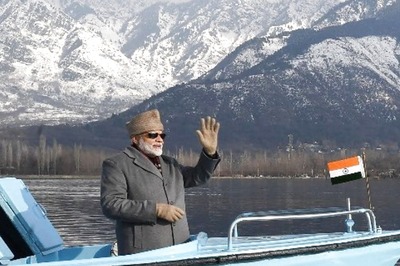


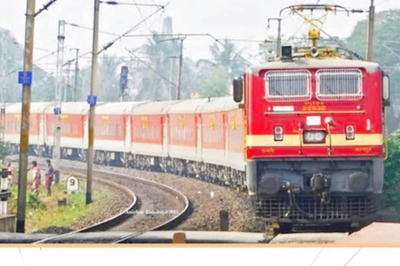
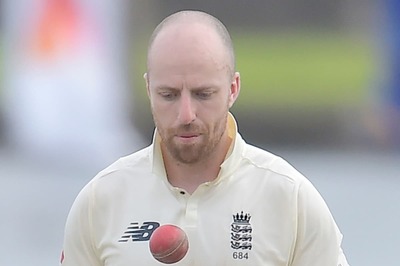

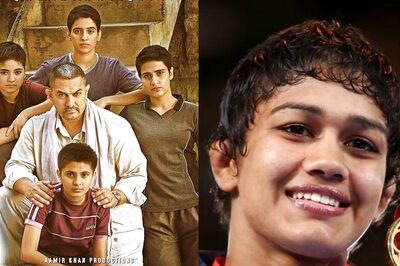

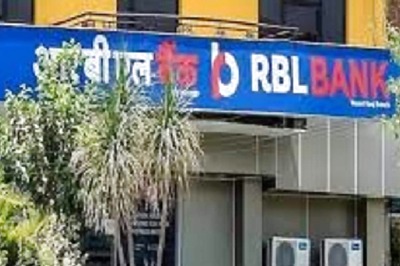
Comments
0 comment